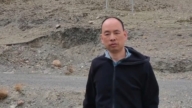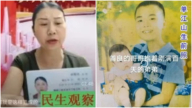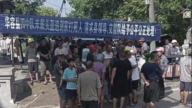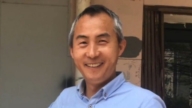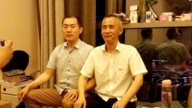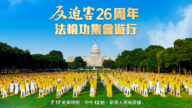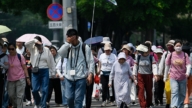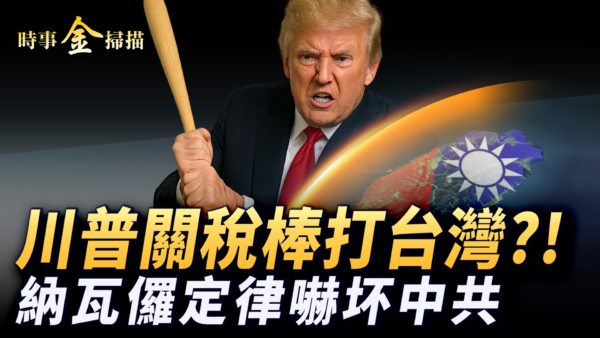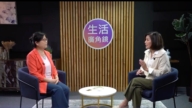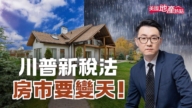【新唐人2015年01月26日讯】中共党刊《求是》杂志的官方网站《求是网》,最近发表评论文章称,抹黑中国正成为当下时尚,一些教师借大学讲台抹黑中国。文章点名批评法学家贺卫方,“利用手中知识权力影响青年人”。对此,贺卫方批评《求是网》的文章是“狭隘无知”。请看报导。
24号的《求是网》刊登了题为《高校宣传思想工作难在哪里?》的文章。文章表示,最近中共中央办公厅和国务院,印发了关于加强高校宣传工作的《意见》,指出要将高校作为意识形态工作的前沿阵地,抵御敌对势力渗透,牢牢掌握高校意识形态工作的领导权、话语权。
除了要求在制度上建立一个标准,确定哪些言论是“越界”的,《求是网》还说,其次加强和改进高校宣传思想工作不能止于课堂,还应包括微博、微信等社交媒体。
《求是网》还特别点名北大法学教授贺卫方,在微博上大谈宪政。
文章最后总结说,要让日前印发的《意见》不只是一道行政命令,而是要让它成为教师内心的价值尺规,根除抹黑中国的乱象。
时事评论员陈明慧:“我觉得这个国家走向和平对话、和平转型的空间越来越小。”
时事评论员陈明慧表示,说明中共对温和的知识份子也不能容忍了。
贺卫方在个人微博上也回应说:“批评我‘大谈宪政’,且不说我谈得还远远不够,了解一点党史的就知道,1940年代毛周刘诸位对宪政可谓念兹在兹,难道他们都错了?动辄说抹黑中国,几个书生,数条微博,就能抹黑?真正抹黑中国的恰恰是这种打压言论的行为!” 贺卫方更表示,这种说法“不仅狭隘,更是无知”。
五十四岁的贺卫方是大陆法学界,主张普世价值和宪政法治的代表。
其实,中共官媒近来不断对大学提出批评。21号的《环球时报》曾刊发文章,表示要反对校园里的“高级黑”。
去年11月14号,《辽宁日报》整版刊发公开信《老师,请不要这样讲中国》。文章称,报社在省内外几大高校中进行了为期两个多月的调查,抹黑中国的现像在高校普遍存在。
随后,中国公安大学副教授王守田,曾因所谓的“不当言论”被拘留,王守田也像上海华东政法大学教授张雪忠、北大教授夏业良一样,被迫离开了大学。
宪政学者陈永苗:“现在舆论上的打击,实际上,它都是另外一种形式的勋章,一种授勋仪式。打击了谁、点名点了谁,对他来说都是炒作名气的机会。”
贺卫方在本月17号作为《南方人物周刊》年度魅力人物的颁奖人,为电影演员王珞丹颁奖。
宪政学者陈永苗指出,现在的情况是,不是中共官媒点了谁的名,谁就完蛋了,民间有民间的解读,与官媒的宣传可不一样。
退休的前儿童新闻工作者于向真撰文指出,“指名道姓批教师,是典型的文革做派。”
也有网友质问,中共控制全国媒体60多年,美化自己60多年,也耗费钜资在外美化自己,怎么没有起作用呢?几个教师说几句就把你们吓坏了?
看来如今中共官媒的宣传,并不能完全起到它们想达到的目的了。
采访/陈汉 编辑/宋风
Professor: Party Mouthpieces Are Ignorant to Criticize Him for Discrediting China in Classes
The Chinese Communist Party’s (CCP) Qiushi magazine
recently published an article on its website.
The article claimed that, “Discrediting China has become
a trend," and criticized some college scholars
for their “discrediting China" speeches in classes.
The article named legal scholar He Weifang
and artist Chen Danqing, criticizing both for “influencing
young people’s opinions with their authority
in knowledge."
He Weifang consequently responded that Qiushi’s article
was narrow-minded and ignorant.
Let’s look at the report.
On Jan. 27, the Qiushi website released an article titled,
“What are the Difficulties in College Propaganda Work?"
The article said the CCP’s General Office and State Council
recently issued “suggestions" regarding propaganda work
in colleges.
The document said propaganda organs have
to treat colleges as frontlines of ideology work,
such as to “defend against filtration from enemies;"
the party has to firmly hold the authority of “leading"
and “speaking" in ideological fields at colleges.
The article demanded that standards be set to judge
what kind of speeches should not be allowed.
Qiushi further commented that tightening control
over ideology at colleges should not be limited
to the classroom, and needs to be executed on social
networks, such as Weibo and WeChat, as well.
The Qiushi article directly named He Weifang,
professor of law at Peking University, and Chen Danqing,
former professor at Academy of Arts and Design,
Tsinghua University.
He Weifang was criticized for frequently discussing
constitutionalism on Weibo; Chen Danqing was criticized for
“excessively glorifying America" via a WeChat article called,
“Don’t Go to America, a Stupid and Undeveloped Place."
The Qiushi article summarized by saying that the issued
“suggestions" should not be an administrative order only;
they have to be incorporated into lecturers’ values,
such as to eliminate all acts of “discrediting China."
Chen Minghui, political commentator:"Both He Weifang
and Chen Danqing are conscientious scholars with courage
to speak inside the CCP regime.
If they are silenced or suppressed, then I think the regime
leaves little space for peaceful conversations
or political transformation."
Chen Minghui said both aforementioned professors
are real intellectuals with the courage to tell the truth.
If these only remaining national backbones
are under suppression, this suggests that the CCP
has no tolerance even toward moderate intellectuals,
said Chen.
He Weifang had responded Qiushi on Weibo.
“I am criticized for talking too much about constitutionalism,
but indeed I am talking far from enough.
Furthermore, anyone familiar with party history should know
that CCP leaders such as Mao Zedong, Zhou Enlai
and Liu Shaoqi always talked about constitutionalism
in the 1940’s.
Are you saying they were all wrong?
Some people like saying “Discrediting China" here and there,
but how can China be discredited by a few scholars
and Weibo messages?
It is your act of suppression over speech
that is bringing shame to our state!"
He Weifang directly commented that Qiushi’s opinion
was “narrow-minded and ignorant".
He Weifang, 54, is a key figure in the promotion of universal
values and constitutionalism among China’s lawyers.
Chen Danqing, 61, is a famous artist who immigrated
to the U.S. 30 years ago.
Chen was once employed by the Academy of Arts and Design
at Tsinghua University.
However, Chen later resigned as he could not tolerate
the CCP’s educational framework.
The fact is that party mouthpieces kept throwing mud
at college scholars and lecturers.
On Jan. 21, Global Times published an article criticizing
the so-called “high-level sarcasms" at colleges.
On Nov. 14 2014, Liaoning Daily published a full-page article
titled “Teachers, Please Do Not Talk About China Like This".
The article claimed that after investigating several
famous universities both inside and outside Liaoning Province
for over 2 months, journalists found that “discrediting China"
speeches are normally seen in college classes.
Following that, Wang Shoutian, associate professor
at People’s Public Security University of China,
was detained for giving “improper speeches".
Wang was later expelled from the university.
Zhang Xuezhong, former professor at the East China
University of Political Science and Law and Xia Yeliang,
former professor at Peking University, experienced
the same situation.
Chen Yongmiao, constitutionalism scholar: “Media attacks
like that have become a medal of honor in China.
Those who were named and criticized, on the other hand,
received an opportunity to become celebrities."
On Jan. 17, He Weifang presented South People Weekly
magazine’s Yearly Attractive Figures award to actress
Wang Luodan.
Chen Danqing had also been given numerous awards
including “The 50 Intellectuals that Influenced China"
and “China’s Top 10 Elite Gentleman".
Chen Yongmiao commented that now is not an era in which
anyone criticized by party mouthpieces would be ruined.
Chinese people have their differing opinions from that
of party propaganda, said Chen.
Yu Xiangzhen, a retired media worker for children,
wrote an article commenting on this issue.
Yu said, “Naming scholars for criticism was typically seen
during the Cultural Revolution."
“As we have seen so many corrupt ‘naked’ officials
and wealthy people moving to U.S. with their money,
how can you slander Professor Chen Danqing
who returned from U.S. to China to teach?
It is absolutely clear who is fooling our people."
Chinese netizens also questioned the CCP for glorifying itself
for more than 60 years by controlling all media in China;
the party also spent a great deal of money doing the same
in foreign countries.
Why does all propaganda fail to work?
Why is the party so frightened simply
by several scholars’ classroom speeches?
It seems that these days the CCP’s propaganda
cannot fully achieve its goal as it did before.
Interview/ChenHan Edit/Songfeng


